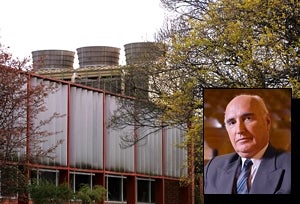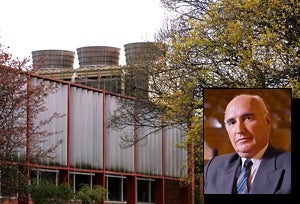HOUSTON—Walking through one of his company’s four manufacturing plants Monday, Sunford Industries CEO Preston Johnson said he can’t bring himself to eliminate the plastics division.

“I know better than anybody that our stackable in- and outboxes and brightly colored Lucite pencil cases aren’t selling like they used to,” Johnson said, running his finger along the molding seam of a polycarbonate drawer organizer. “But does that mean we just let the plastics division go? It’s been with Sunford since the beginning.”
A dominant supplier of office products in the late ’80s and early ’90s, Sunford suffered a dramatic loss of market share with the rise of such national office-supply retailers as OfficeMax and Office Depot. Although the company’s metal and paper divisions continue to thrive in the regional market, the plastics division recently posted its 14th consecutive quarter in the red.
“Yes, plastics isn’t doing so well, but I’m not going to just abandon it,” Johnson said. “I’m supposed to turn my attention to the metal-fabrication division, just because there’s local demand for our metal office furniture, fixtures, and equipment? After all plastics and I have been through, I’m supposed to just pull the plug? I couldn’t live with myself.”
After 20 years at the helm of Sunford Industries, Johnson said he is no stranger to dramatic, even harsh cost-cutting measures. When he was promoted to CEO in 1984, he restructured the fulfillment department, slashing more than 100 jobs. Additionally, he declared a wage freeze on all of the department’s remaining employees, implemented tighter labor standards in shipping, and drastically reduced insurance benefits for non-salaried employees.
“But the plastics department is different,” Johnson said. “When you care about something so much, it’s just… Jesus, it’s just a lot to take sometimes.”
Johnson added: “If it’s gotta be done, get somebody else to do it. Henderson or somebody.”
Patting the side of an injection-molding machine, Johnson said he couldn’t help reflecting on “the early days with plastics.”
“I used to look forward to my Friday walk-throughs of the die-molding department all week,” Johnson said. “As soon as you opened the door, the smell of hot plastic would hit you—right in the chest. It was so… familiar. I can’t flip a switch and wipe out all those memories.”
Shareholders in Sunford are aware that Johnson objects to killing the ailing plastics department.
“That plastics department and Preston go way back—it’s like his family,” shareholder Theodore Althouse said. “None of us can understand it, not even the plastics-division staff. Everyone there is just a replacement for someone who left or was fired in the past three years.”
Responding to what Sunford board members categorized as Johnson’s “unhealthy attachment” to the plastics division, chairman P. Richard Evans said he is considering a resolution that would force Johnson to “do the right thing” and put a swift end to plastics.
“I wouldn’t want to be in Preston’s shoes right now,” Evans said. “But clinging to the past is simply not the responsible way to run a company.”
Evans said plastics had a good run, but that eliminating the division will boost Sunford’s stock-market value by nearly 20 percent—and allow Johnson to focus on the future.
“Johnson simply has to let go,” Evans said. “The division’s time has come. I keep telling him, ’Do it quickly, with a single memo to the head of the division. That’s the most humane way.’”
Johnson said he’s not sure he’s ready.
“Sure, we started up a new AV/Tech-products division, and it has shown steady growth since its inception, but it’s just not the same,” Johnson said. “I’ve got 20 years of memories with plastics. In 1993, third quarter, they beat expectations by 53 percent. That’s right—53 percent! Plastics has been with this company since before AV/Tech was even on our letterhead.”
While he said he’ll “never, under any circumstances, kill plastics outright,” Johnson acknowledged that he will most likely have to make concessions to the board by tying the division’s operating budget directly to order-fulfillment figures and allowing employees to transfer to other divisions as work slows.
“It ain’t over ’til the orders run out and the last man is gone,” Johnson said. “Some say there’s no reason to keep plastics around, but I disagree. Why ruin its last few quarters? Why not let the division die naturally, with dignity? After all plastics has done for Sunford, it’s the least Sunford can do for plastics.”
Added Johnson: “Well, I guess the plastics division will never truly die as long as I keep a part of it in my heart.”







